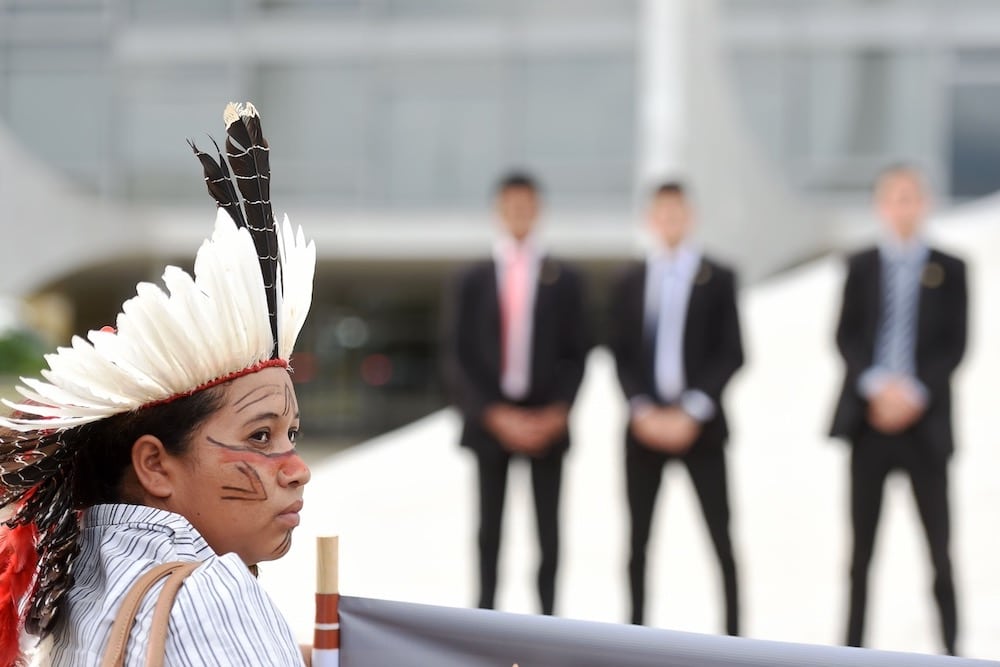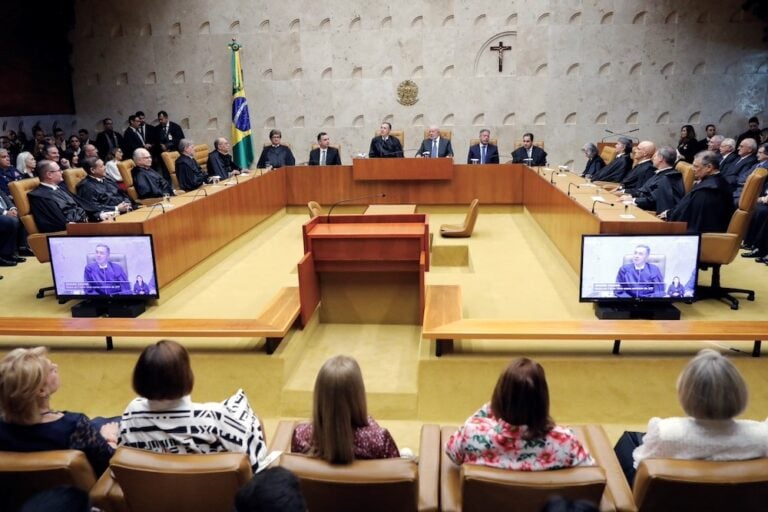Renaud Philippe: "I have never been so worried about my safety at the hands of those who are supposed to 'serve and protect.'"
This statement was originally published on abraji.org.br on 8 December 2023.
“I have never been so worried about my safety at the hands of those who are supposed to ‘serve and protect.’” The statement comes from Canadian journalist Renaud Philippe (39), who was attacked by armed men on Wednesday (22 November 2023), along with his wife and colleague, anthropologist Carol Mira (38), in a rural area of Iguatemi, in Mato Grosso do Sul, Brazil. In an interview conducted by the Brazilian Association of Investigative Journalism (Abraji), he described in detail the attack suffered within the borders of Brazil and Paraguay. Renaud Philippe has worked in conflict zones around the world for 18 years and says he has never felt so threatened by the leniency of the security forces in his entire career such as this time. “It’s hard to understand that in a country like Brazil, a democratic country, it would be impossible for us to rely on the police,” he said.
The journalist was reporting on conflicts over land boundaries between indigenous communities and landowners. While documenting the Aty Guaçu Assembly in the town of Caarapó, Renaud Philippe and Ana Carolina Mira received information about a conflict over land reclamation in Iguatemi, a town nearby.
The researchers decided to go to that area and, despite their intention to seek the support of the National Guard, they did not do so, as they were informed by agents of the Department of Border Operations (DOF) that “nothing unusual” was happening in the area.
On their way back, the journalist, the anthropologist Carol Mira, and Renato Farác, (41), an environmental engineer who had accompanied them, were surprised by around thirty armed and hooded men in pick-up trucks on the road linking highways 295 and 386, near the Maringá Farm.
Describing the situation as an ambush, Philippe explains: “The attackers had been warned and were expecting our arrival. It was an ambush. Who warned them? The only ones who knew of our presence were these border police.”
Renaud Philippe and Carol Mira were thrown to the ground, kicked, punched, and verbally threatened. During the attack, the journalist’s hair was cut with a knife by one of the attackers, their car was looted and they had their work equipment stolen, including a camera, a memory card, two mobile phones, documents, and money. Carol Mira was threatened with having her hair and face cut with a knife.
Philippe and Mira managed to escape and drove about 120 km to the Amambai police station. In his testimony, Renaud Philippe said that when they saw Military Police at the scene, they called for help but were ignored. “While I was lying on the ground in the mud, being kicked, beaten, and having my hair torn out, Carol called for help from the military police who were present during the attack. They turned a blind eye,” says Renaud Philippe.
The journalist added that while he was giving his statement, he noticed two vehicles outside the police station: “The cars were marked with the name of the Maringá Farm. They drove past the police station, very slowly, looking in our direction. It was a clear form of intimidation. Again, who warned them? How did they find us?”
The Guarani and Kaiowá peoples
According to the Report on Violence Against Indigenous Peoples in Brazil, carried out by the Indigenous Missionary Council (Cimi), Mato Grosso do Sul recorded 78 cases of violence against indigenous peoples in 2021.
There were also 24 cases of violence triggered by government omission. In addition, 35 cases of suicide were documented, highlighting an alarming situation that requires immediate action to ensure the protection of these communities.
In areas such as Iguatemi, the line between personal interests and political relationships is a thin one. According to the photojournalist, it is common for local politicians to also be landowners, creating a scenario in which two antagonistic positions converge against the same groups: environmental activists, human rights defenders, indigenous people, and communicators.
For the Canadian journalist, the aggression they had suffered is directly linked to the lack of demarcation of indigenous lands. “I have never been so worried about my safety at the hands of those who are supposed to ‘serve and protect’. On the contrary, it had been the indigenous people who have provided us with a safe space. We are not facing isolated threats, we are facing a real organization that is using the lack of legal recognition of indigenous lands to impose its agenda.”
Philippe and Mira, who have been documenting the realities of the Guarani and Kaiowá peoples for two years, reported that hostility is constant in these lands, leading them to develop specific strategies to ensure their safety while reporting in Mato Grosso do Sul.
The researchers decided to keep the purpose of their presence in the area secret and established rules, such as not mentioning the reason for the visit and not using indigenous artifacts such as necklaces and bracelets. They decided not to mention Carol’s profession as an anthropologist to avoid any possible backlash. As a protective measure, the couple also adopted a strategy of constant movement, avoiding staying in the same place for long periods of time.
Other cases of violence: Dom and Bruno
Cases of violence against activists, journalists and communicators in indigenous demarcation zones are not isolated incidents. The murder last year of Dom Phillips, a British journalist, and Bruno Pereira, an indigenous expert, in Javari Valley (AM), provoked a response from national and international organizations working in defense of journalism and human rights.
According to Renaud Philippe, the lack of effective action by public authorities in these regions could lead to limited protection for indigenous peoples. These groups play a crucial role in preserving the environment and depend on the land for their livelihoods. Renaud Philippe added: “The social climate has been very tense for a long time, hostility towards the indigenous Guarani population has been a reality for more than 500 years. Today there is torture, kidnapping, murder, intimidation; this violence takes many forms.”
In the face of these challenges, Renaud Philippe and Carol Mira emphasize the importance of information and the role of journalism. For them, “information is a weapon. The more we know, the less we judge and the less we can close our eyes”. They also reaffirm their commitment to inform: “Violence will not make us give in. The wave of reports on the reality of the Guarani people in Brazil and elsewhere is enormous, but our hearts are heavy when we realize that a white North American man has to be the victim of such an episode for the media to open their eyes to these documented realities.”



